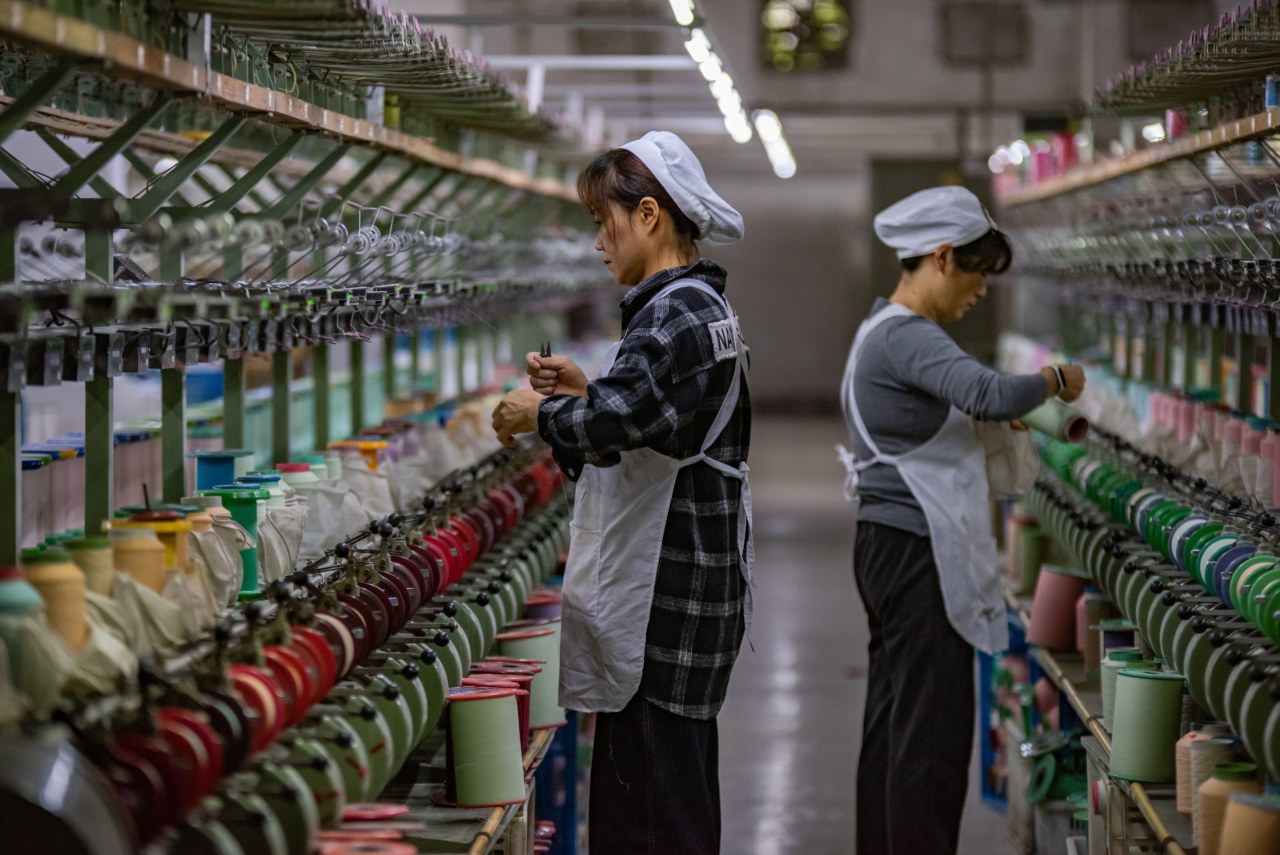World
China Faces Sharp Investment Drop as Economic Slowdown Deepens

China has reported its most significant decline in investment in years, signaling ongoing challenges for the economy. According to the National Bureau of Statistics, total fixed-asset investment fell by 14.8% in the first nine months of 2023 compared to the previous year. This downturn highlights the deepening economic slowdown and raises concerns about the country’s ability to sustain growth.
The investment slump is coupled with a notable decline in consumption. Retail sales have experienced their longest period of decelerating growth since 2021, further complicating the economic landscape. In September, retail sales rose by only 3.4%, a stark contrast to the 8.5% growth recorded in the same month last year. This trend indicates that consumer confidence continues to wane, affecting overall economic performance.
Investment Trends Raise Alarm
The drop in investment is particularly concerning for policymakers who have relied on infrastructure and real estate projects to stimulate economic activity. Analysts suggest that ongoing regulatory crackdowns and uncertainties in the property market have deterred both domestic and foreign investors. The government had hoped for a rebound in investment to counterbalance slowing consumption, but these latest figures suggest that recovery may be more challenging than anticipated.
Investment in real estate, which has been a critical driver of growth in China, has also seen a sharp decline. The sector has faced significant headwinds due to a government push for financial stability and a crackdown on excessive borrowing. As a result, many construction projects have stalled, further affecting related industries and employment.
Government Response and Future Outlook
In response to these troubling figures, Chinese authorities are under pressure to implement measures that can reignite growth. Several initiatives have been proposed, including easing restrictions on property purchases and increasing funding for infrastructure projects. However, the effectiveness of these measures remains to be seen, as consumer sentiment is difficult to restore in the current climate.
The broader implications of these trends extend beyond China’s borders. As the world’s second-largest economy, China’s slowdown could have ripple effects on global markets and trade. Economists are closely monitoring the situation, as continued weakness in China could hinder recovery efforts in other economies still grappling with the impacts of the global pandemic.
In conclusion, China’s economic landscape is facing significant challenges, marked by a steep decline in investment and slowing retail sales. The coming months will be critical as the government seeks to implement strategies to foster recovery amid these persistent headwinds.
-

 Top Stories3 weeks ago
Top Stories3 weeks agoMarc Buoniconti’s Legacy: 40 Years Later, Lives Transformed
-

 Health3 weeks ago
Health3 weeks agoInnovative Surgery Restores Confidence for Breast Cancer Patients
-

 Business2 weeks ago
Business2 weeks agoForeign Inflows into Japan Stocks Surge to ¥1.34 Trillion
-

 Sports1 month ago
Sports1 month agoSteve Kerr Supports Jonathan Kuminga After Ejection in Preseason Game
-

 Top Stories3 weeks ago
Top Stories3 weeks agoBOYNEXTDOOR’s Jaehyun Faces Backlash Amid BTS-TWICE Controversy
-

 Science1 month ago
Science1 month agoChicago’s Viral ‘Rat Hole’ Likely Created by Squirrel, Study Reveals
-

 Lifestyle1 month ago
Lifestyle1 month agoKelsea Ballerini Launches ‘Burn the Baggage’ Candle with Ranger Station
-

 Entertainment1 month ago
Entertainment1 month agoZoe Saldana Advocates for James Cameron’s Avatar Documentary
-

 Politics1 month ago
Politics1 month agoDallin H. Oaks Assumes Leadership of Latter-day Saints Church
-

 Science2 weeks ago
Science2 weeks agoUniversity of Hawaiʻi Joins $25.6M AI Project to Monitor Disasters
-

 Lifestyle1 month ago
Lifestyle1 month agoDua Lipa Celebrates Passing GCSE Spanish During World Tour
-

 Business1 month ago
Business1 month agoTyler Technologies Set to Reveal Q3 2025 Earnings on October 22









